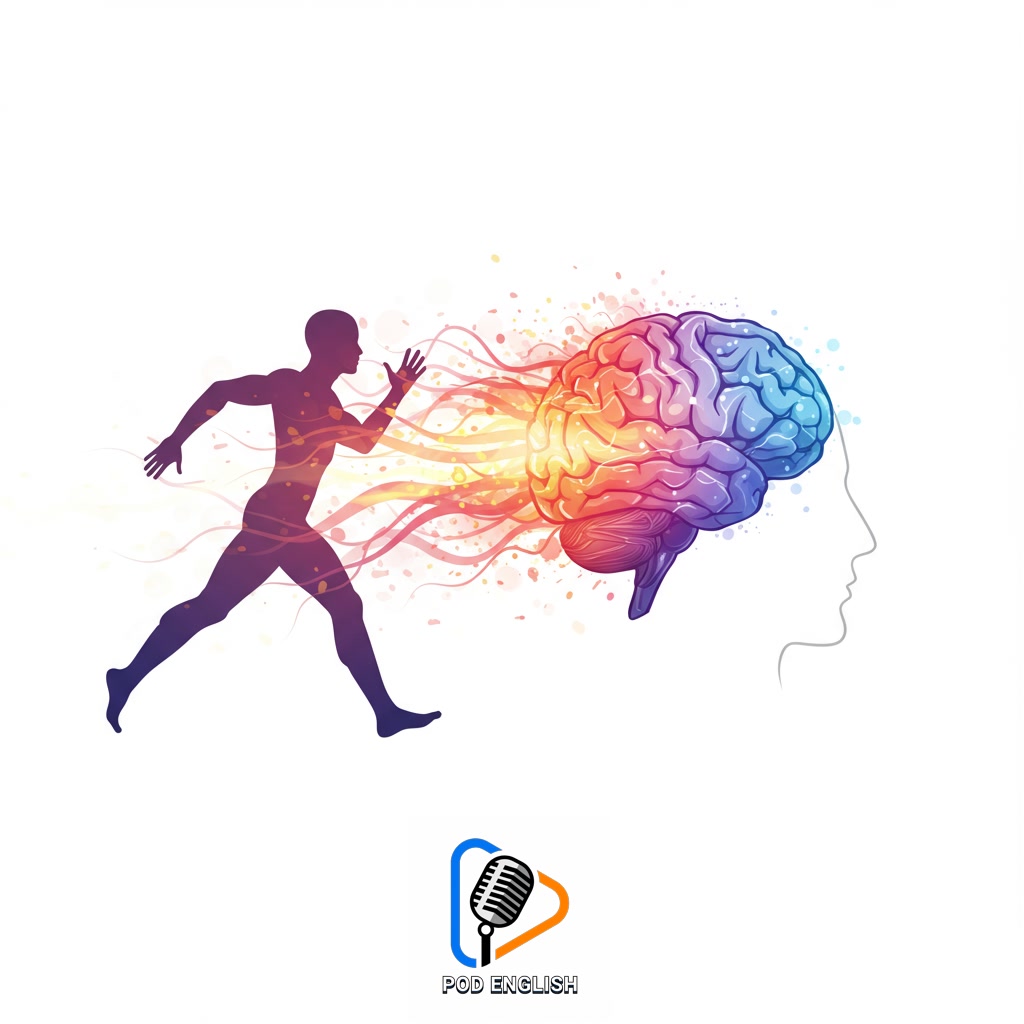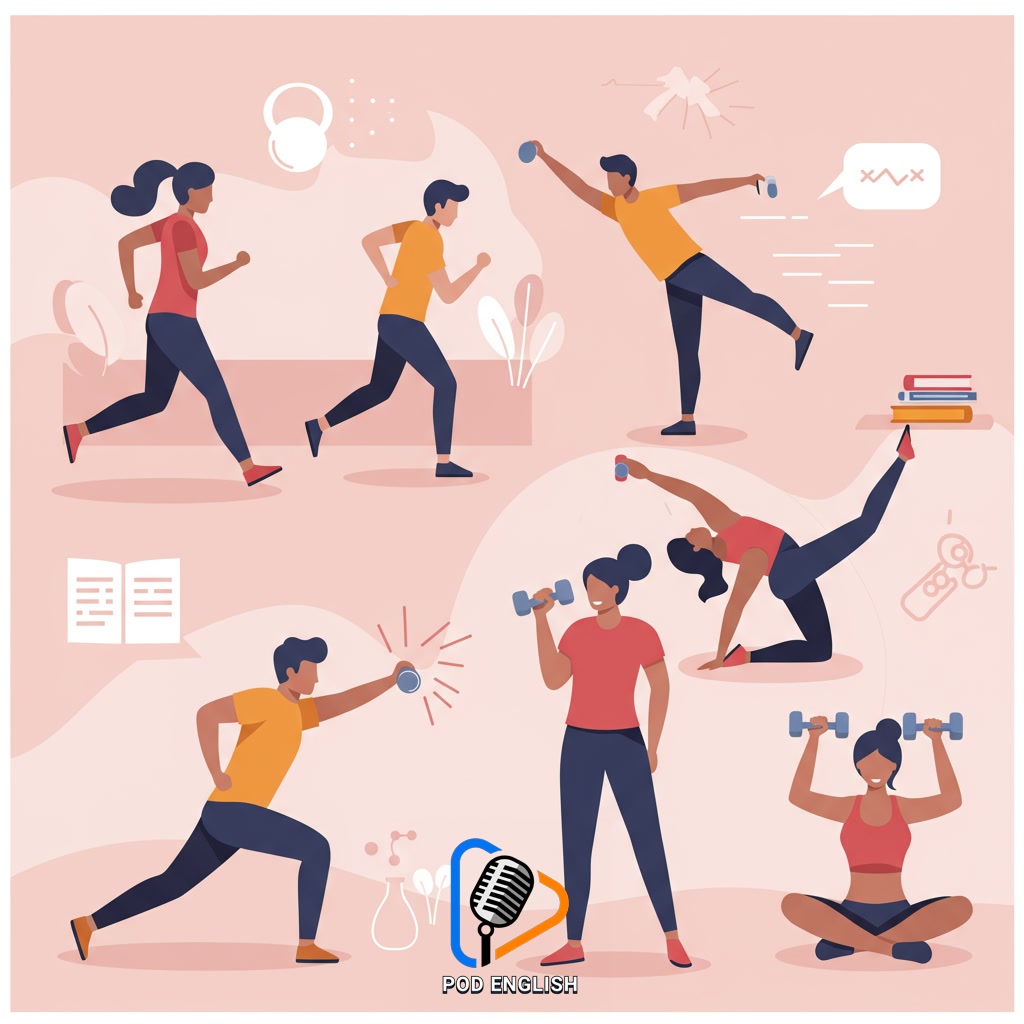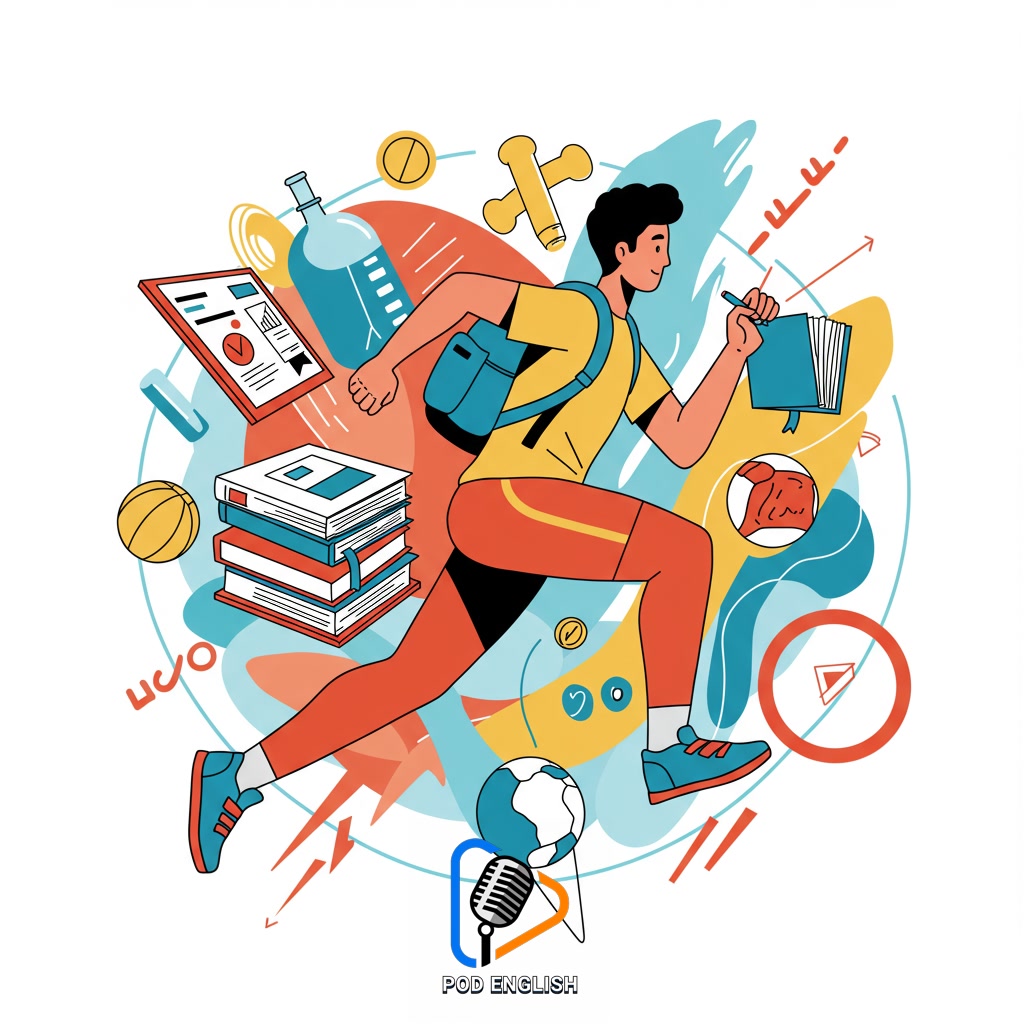Learn English
Boost Academic Performance with a Balanced Fitness Routine

Regular physical activity is crucial for enhancing cognitive function and overall well-being. Incorporating a balanced fitness routine can lead to improved concentration, memory retention, and reduced stress levels. These benefits directly contribute to better academic performance across various subjects. This enhanced focus and mental clarity can also significantly aid in challenging tasks such as mastering a new language like English. Prioritizing physical health is a powerful strategy for achieving academic success.
Table of Contents
- Section 1: The Student Challenge: Balancing Study and Well-being
- Section 2: How Fitness Rewires the Brain for Better Learning
- Section 3: Direct Academic Payoffs: Focus, Memory, and Stress Reduction
- Section 4: Crafting Your Ideal Balanced Fitness Routine
- Section 5: Integrating Exercise into a Packed Student Schedule
- Section 6: Applying Cognitive Benefits: Excelling in Subjects, Including Learning English
- Section 7: Making Fitness Your Secret Weapon for Academic Success
Section 1: The Student Challenge: Balancing Study and Well-being
Students today face a significant challenge in balancing demanding academic schedules with the essential need for personal well-being. The pressure to excel in subjects, including mastering complex skills like learning English, often leads to long hours spent studying, attending classes, and completing assignments. This intense focus can make it difficult to find time or energy for physical activity, healthy eating, adequate sleep, or relaxation. Many students feel constantly stretched thin, juggling coursework deadlines with the desire to maintain their physical and mental health. This struggle is the core of the ‘Student Challenge,’ highlighting the pervasive difficulty in integrating wellness practices into a busy academic life. Overcoming this challenge is crucial not only for overall health but also for sustaining the focus and cognitive function necessary for academic success.

The Student Challenge: Balancing Study and Well-being
Section 2: How Fitness Rewires the Brain for Better Learning
Regular physical activity significantly impacts brain structure and function, essentially ‘rewiring’ it for enhanced learning capabilities. Exercise increases blood flow to the brain, delivering vital oxygen and nutrients necessary for optimal performance. Crucially, it stimulates the production of neurotrophic factors, like Brain-Derived Neurotrophic Factor (BDNF), which act as fertilizers for brain cells. BDNF promotes the growth of new neurons, particularly in areas associated with memory and learning, and strengthens the connections between existing neurons. This process, known as neuroplasticity, improves cognitive functions such as attention span, working memory, and problem-solving skills. These changes make the brain more receptive to absorbing new information and forming robust memories, directly benefiting academic pursuits, including the demanding task of mastering a new language like English by improving the ability to retain vocabulary and grammatical structures.

How Fitness Rewires the Brain for Better Learning
Section 3: Direct Academic Payoffs: Focus, Memory, and Stress Reduction
Building upon the foundation of enhanced brain function, regular physical activity directly translates into tangible academic advantages. Improved blood flow and neurotransmitter balance significantly sharpen your ability to concentrate during lectures or study sessions, making complex topics, including the nuances of learning English grammar or vocabulary, feel more accessible. This heightened focus also strengthens memory consolidation, allowing you to retain information more effectively for exams and assignments. Furthermore, exercise is a powerful stress reliever. By reducing cortisol levels and releasing endorphins, it helps manage academic pressure and anxiety, creating a calmer mental state conducive to learning and problem-solving. These combined effects of better focus, stronger memory, and reduced stress provide a clear pathway to improved performance across all academic subjects.

Direct Academic Payoffs: Focus, Memory, and Stress Reduction
Section 4: Crafting Your Ideal Balanced Fitness Routine
Building upon the foundation of enhanced brain function, crafting your ideal balanced fitness routine is the practical next step to harness these benefits for academic success. A truly balanced routine incorporates a mix of cardiovascular exercise, strength training, and flexibility work. Cardio boosts blood flow and oxygen to the brain, improving focus and memory essential for studying complex subjects or mastering vocabulary when learning English. Strength training builds resilience and reduces fatigue, while flexibility exercises promote relaxation and stress reduction. Aim for consistency, finding activities you enjoy to make fitness sustainable. Tailoring the intensity and duration to fit your schedule ensures the routine complements, rather than overwhelms, your academic commitments, creating a powerful synergy for improved performance.

Crafting Your Ideal Balanced Fitness Routine
Section 5: Integrating Exercise into a Packed Student Schedule
Building on the foundation of enhanced brain function, crafting your ideal balanced fitness routine is the practical next step to harness these benefits for academic success. A truly balanced routine encompasses cardiovascular exercise, strength training, and flexibility. However, the challenge for many students is finding time to fit regular physical activity into demanding academic schedules. The key is strategic integration, not necessarily dedicating large, uninterrupted blocks of time. Consider incorporating short bursts of activity throughout the day: a quick walk between classes, doing push-ups or stretches during study breaks, or taking the stairs instead of the elevator. Utilize campus facilities like gyms or sports fields during less busy times. Combining tasks can also work, like listening to educational podcasts or audiobooks while jogging or cycling. Flexibility is crucial; if a planned workout is missed, don’t give up – simply adjust and fit in a shorter session later. Remember, even brief physical activity significantly contributes to reducing stress and improving focus, directly supporting your academic goals, including challenging subjects like mastering English. Consistency, even in small doses, is more effective than infrequent, long sessions.

Integrating Exercise into a Packed Student Schedule
Section 6: Applying Cognitive Benefits: Excelling in Subjects, Including Learning English
Building on the foundation of enhanced brain function established by a balanced fitness routine, these cognitive advantages directly translate into academic success across all subjects. Improved focus and sustained attention allow you to absorb complex information more effectively in lectures or during study sessions. Enhanced memory retention makes recalling facts, formulas, or vocabulary much easier, crucial for excelling in science, math, history, and especially for mastering a new language like English. Furthermore, the stress reduction achieved through regular exercise helps maintain mental clarity during exams and challenging assignments. By actively applying these sharpened cognitive abilities, you can tackle difficult concepts with greater confidence and achieve higher levels of proficiency in your studies, including accelerating your progress in learning English.

Applying Cognitive Benefits: Excelling in Subjects, Including Learning English
Section 7: Making Fitness Your Secret Weapon for Academic Success
Building on the improved brain function from a balanced fitness routine, these cognitive benefits become your strategic advantage in academics. Enhanced focus allows you to absorb information more effectively during classes and study sessions, crucial when mastering complex subjects or new languages like English. Better memory retention means you can recall facts, formulas, or vocabulary with greater ease, making revision and exams less daunting. Furthermore, regular physical activity significantly reduces stress and anxiety often associated with academic pressure, leading to a calmer, more confident approach to learning and testing. This combination of heightened mental clarity, improved memory, and reduced stress truly makes incorporating fitness a powerful, almost unfair, advantage – your secret weapon for achieving academic excellence.

Making Fitness Your Secret Weapon for Academic Success













